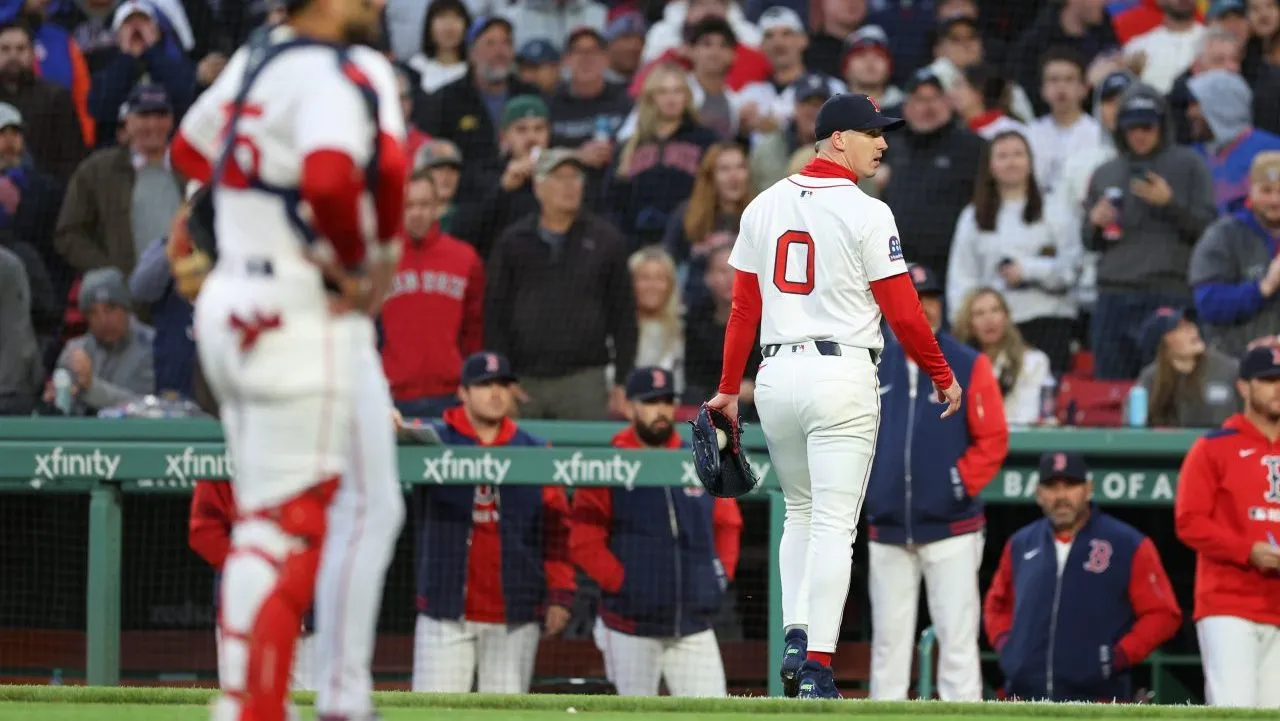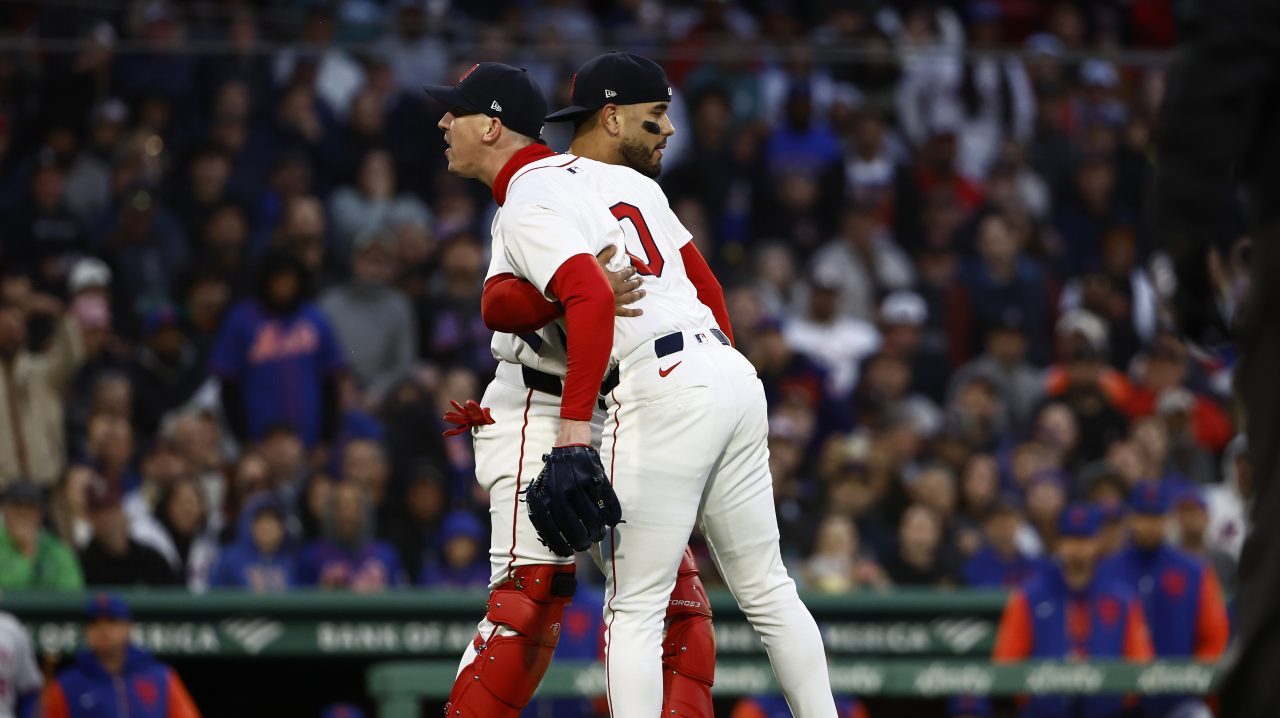Last Wednesday, Rob Manfred 100 percent guaranteed baseball would return in 2020. Five days later he declared the season on life support while tugging forlornly at the plug.
Watching baseball's leader flail like Manny Ramirez chasing a pop-up, an obvious question springs to mind: Just whose commissioner is he, anyway?
Don't worry, that's rhetorical.
Get the latest news and analysis on all of your teams from NBC Sports Boston by downloading the My Teams App
Manfred serves at the pleasure of the owners, who hired him and pay his salary, but his name will go down in the history books if there's no season, just as his predecessor, Bud Selig, must wear the ignominy of the 1994 strike, the 2002 All-Star Game tie, and the Steroid Era. (Then again, he still made the Hall of Fame, because nobody fails up like a billionaire).
Manfred's willingly steering this ship into the ground at the behest of cost-conscious owners when there's another constituency that deserves a say in the game's future — you know, the guys who actually play — and it's jarring to hear how little concern he can muster on behalf of the players during this detestable saga.
He's their commissioner, too, but you wouldn't know it from his rhetoric.
His primary motivation with Monday's scare quotes seems to be bullying the players into not filing a grievance when the owners impose their worthless 50-game season. That makes Manfred baseball's version of Mitch McConnell, more concerned with protecting the Koch brothers from lawsuits than doing right by the American people.
Boston Red Sox
Find the latest Boston Red Sox news, highlights, analysis and more with NBC Sports Boston.
He's also the dog that eats the owners' table scraps, but it's worth noting that commissioners didn't always play the role of subservient hound. Many of us are old enough to remember a commissioner who acted in the best interest of the sport, and all it got him was a spot next to Jimmy Hoffa somewhere under the Meadowlands.
Fay Vincent approached the job like his mentor and predecessor, the great Bart Giamatti. He sided with the players after the owners colluded to limit free agent spending from 1985-87, and he helped raise the minimum salary above $100,000 for the first time in 1990.
As Vice noted in a retrospective on his firing, "Vincent's fatal flaw as commissioner was his penchant for acting in the interests of fairness rather than the interests of his employers." The owners viewed the players and particularly the union as a nemesis to be crushed. Vincent treated them as a partner.
That was never going to fly in the Hamptons retreats and on the mega-yachts of the game's owners, so they conducted a vote of no-confidence in 1992 and forced Vincent out, replacing him with one of their own. Selig was supposed to serve on an interim basis, but he ended up holding the job for 22 years, only one fewer than he had owned the Brewers while overseeing just two playoff berths.
Manfred first worked with MLB, appropriately enough, in 1987, when the owners were winding down their collusive efforts in the face of multiple grievances. He joined the league full-time in 1998 and was long groomed as Selig's successor.
Now he's in the center of a storm bigger than any his old boss ever faced.
The pandemic has savaged the bottom line and forced all sports to confront the reality of playing in empty stadiums. Baseball seemed primed to lead the return and negotiations started amicably with the March deal of prorated pay in exchange for full service time. The sides never clearly articulated what would happen without fans, which is why we're here today.
The owners have tried to prevail via sleight of hand, however, offering a series of deals that end in the same place: with the players earning about a third of their original salaries. The easiest way for the owners to get there is simply to play 50 games, fully prorated. The only problem is, they're supposed to be negotiating in good faith, and that's a hard case to make if they just unilaterally impose the shortened schedule before the calendar mandates it.
So they're stalling. Except Manfred screwed that up when he announced at the draft that a season would be played. The players called his bluff, with union chief Tony Clark declaring, "It's time to get back to work. Tell us where and when."
Now the league is in a box. If it declares martial law now, the players can make a much stronger case in any possible grievance. If it drags this out for another week or two, the sport will continue to be hammered like a deposed dictator.
Meanwhile, Manfred shows no interest in representing the product on the field. The game's popularity, such as it is, still resides with the players, and by siding so completely with the owners, Manfred is spitting in the face of superstars like Mike Trout, Mookie Betts, and Christian Yelich. If I were Betts, I'd play one game to get my service time, ensure free agency, and then call it a season. The owners barely want to play this year, anyway.
While the NBA's Adam Silver demonstrates what an actual partnership looks like by involving the players in a possible summer return, Manfred retreats to ownership's bunker and awaits instructions.
Meanwhile the players grow more unified, the owners become the clear villains, and the sport suffers irreparable harm.
Whoever's best interests Manfred is serving, this much is clear — they're not his own.


